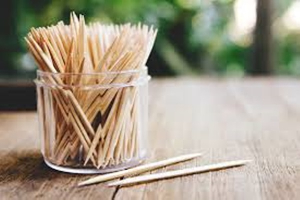The Member of Parliament (MP) for Akatsi South, Mr. Bernard Ahiafor, has commended traditional religious worshipers at Dagbamete in the Akatsi South District for using their religion to promote development, peace, and unity among the people in the area over the years, which, he said, needed to be encouraged for the benefit of the present and future generations.
Mr. Ahiafor observed that the traditional worshipers of Afetorku Gbodzi had used their traditional religion to maintain peace and unity in the community, which made it possible for the people to live happily and use traditional religion as a major source to drive development activities in improving the living conditions of the people.
Speaking at the annual traditional festival of Afetorku Gbodzi at Dagbamete, the MP said they had distinguished themselves in the District over the years, and pledged his support for the three main religious groups in the area, namely Christian, Traditional and Islamic.
The traditional worshipers of Afetorku Gbodzi have established a hospital at Dagbamete, with accommodation for doctors and nurses, which the MP stressed was a project initiated by the traditional religious practitioners and the community.
The MP said he was aware of the roles being played by other religious groups in the area, noting that the church had also established schools and provided other public facilities, just like the traditional religious worshipers of Afetorku Gbodzi have been doing.
Mr. Ahiafor noted that when religious groups and community members initiate their own development projects, it would help promote rapid development like the establishment of hospital which would go a long way to disabuse peoples’ minds that it was only the government that could bring development to their areas.
He cautioned the people in the area not to discriminate against any religious groups, because all that they sought to do was worship the same creator of the universe through different ways, and urged other communities in the area to emulate the chiefs and people of Dagbamete, in order to achieve the much-needed development.
The MP noted that the government had appreciated the efforts being made by the traditional religious worshipers at Dagbamate, particularly the hospital they built, and the government, through the District Assembly, connected electricity to the newly-built hospital and bungalows for doctors and nurses.
The Secretary to the traditional religious worshipers of Afetorku Gbodzi, Mr. Samuel Davor, explained that the traditional religion that they have been practicing was built on five pillars, namely truth, good neigbourliness, respect for human life, love, and justice, which guide the members to lead lives pleasing to the Almighty God at all times.
Mr. Davor said the striking feature of Afetorku Gbodzi was that no advert was made for new members, but gets it members through what he described as voluntary membership, where individual members and benefactors propagate what he called the good work of Afetorku Gbodzi to friends, who, in turn, volunteer to become members of the traditional religious worshipers of Afetorku Gbodzi.
He continued that the traditional religious practice of Afetorku Gbodzi was noted for its healing powers of all kinds of sicknesses and ailments, which modern and western medicine could not cure, but could easily be cured through traditional religious practices of Afetorku Gbodzi.
He further noted that presently, 18 patients suffering from different sicknesses were on admission at Afetorku Gbodzi at Dagbamate.
Mr. Davor said the establishment of the hospital at Dagbamate was to help complement western medicine and traditional methods of healing, particularly, sicknesses that could easily be handled at hospitals without the patients going through difficulties before getting to hospitals.
He said the establishment of the hospital also became necessary, in view of the difficulties communities in the catchment area such as Avenorpedo, Avenorpeme, Fiato, Avedo, Nyekonakpoe, Dzuepe, Horti, Havi, Lofetsume, Atsiati, Gamorkope, Maleme, Kutsime, Tsiame, Asadame and Hatorgodo found it challenging to get access to hospitals at either Abor or Akatsi, which were as far as nine or more kilometres. Mr. Davor announced that the hospital, which cost thousands of Ghana cedis, was built by Afetorku Gbodzi traditional worshipers, and had such facilities like three consulting rooms, record rooms, laboratory, X-ray room, pharmacy, a theatre, patients’ waiting room, children’s ward with 10 bed capacity, a 10-bed male ward, and 12-bed female ward.
He, therefore, on behalf of the traditional worshipers of Afetorku Gbodzi, appealed to the public to help the hospital with computers and laminating machines, furniture, hospital beds, laboratory equipment, X-ray machines, and OPD equipments such as scales, thermometers, pressure measurements equipment, tri-cycles and stretchers among others.
The Chief of Dagbamate, Togbui Klu Agudzeamegah II, who played a leadership role by donating EC equipment and other equipments costing GH¢134,055 to the hospital, commended the traditional worshipers of Afetorku Gbodzi, particularly, the second in command in terms of leadership at Afetorku Gbodzi, Ngorgbea Kofi Davor, for his instrumentality in building the hospital, provision of educational infrastructure, and other social facilities for the town.
Togbui Klu Agudzeamegah appealed to the government to absorb the hospital into the government sector, and provide doctors, nurses and other health workers to work at there, since accommodation for staff had been provided by the traditional religious worshipers of Afetorku Gbodzi and the Dagbamate community.
The Chief of Dagbamate, Togbui Klu Agudzeamegah II (left), presenting hospital equipment to Ngogbea, with Kofi Davor (right) who received the equipment on behalf of the traditional worshippers of Afetorku Gbodz.
Regional News of Wednesday, 23 April 2014
Source: The Chronicle
















